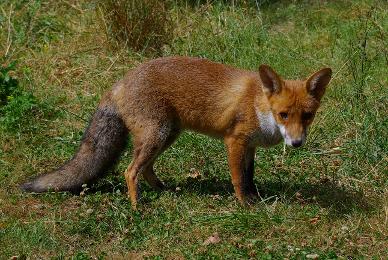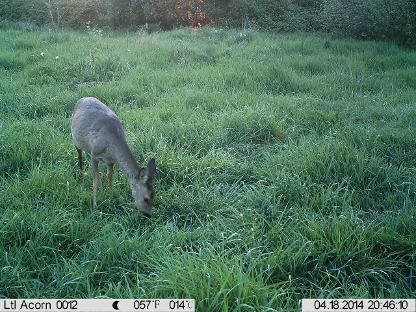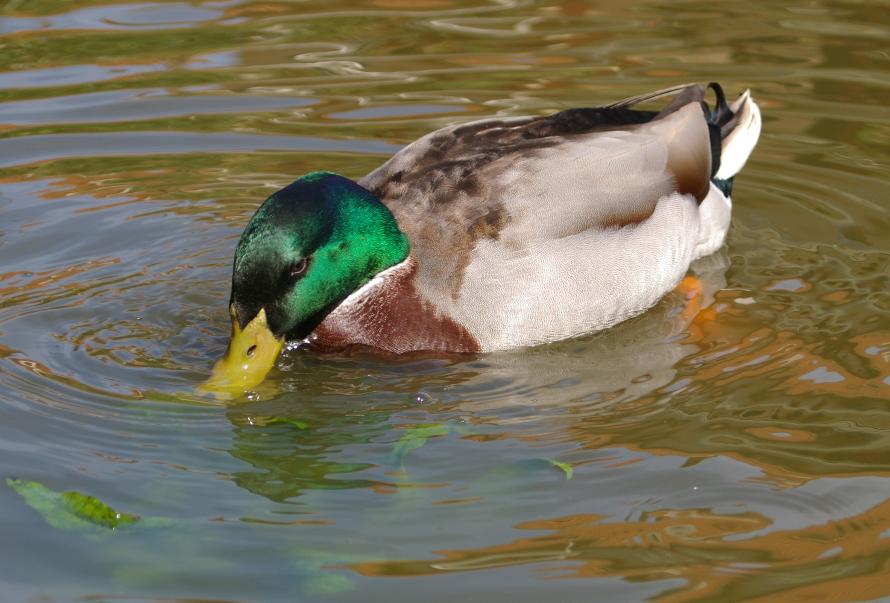Translate This Page
Human activities with regard to animals and their implications (and why we should stop them)
Hunting, Canned hunting and Trophy hunting
I've been spending a lot of time thinking about how to catagorise "sport" hunting. It's not a sport: the animals don't know that they are participating. In any case the two sides are unevenly matched: one animal against a number of hunters, perhaps with dogs, most certainly with weapons capable of killing at ranges of hundreds of metres. Hunters also have access to modern technology such as telecommunications, tracking collars on their dogs, vehicles and even night vision equipment.
It's not generally a necessity for food. Many animals that are killed are also not used for food anyway: foxes, wolves, cats, bears, squirrels, racoons... During the migration season in France when hunters try to massacre as many birds as possible it's not unheard of to find a dumpster full of unwanted, dead, ducks including some from protected species, as many hunters either can't identify the differences or don't bother.
It's not providing a service by "regulating" nature by keeping the numbers under control and "humanely" killing weak and old animals. For one thing, it clearly doesn't work, as the exercise has to be repeated year after year. In fact, it's quite

clear that by eliminating the competition i.e. other predators, hunters deregulate nature and allow large populations of prey animals to grow. In addition, when it comes to "culling" large animals, hunters kill random animals or, if possible, tend to prefer to kill the most attractive specimens rather than the weak and the old. This can have long term consequences for the species: in areas where there is a lot of hunting, the size of Big Horn Sheeps' horns has fallen by 25% over the last few decades and tuskless elephants are becoming more common in Africa.
It's clear that so-called regulation is a fake excuse, as many animals are bred in captivity and then released into the wild as targets for hunters. In France, for example, over 20 million animals per year ranging from pheasants to deer are raised to be released to be shot. Many of these animals are accustomed to humans, so don't see them as a danger. They are also used to being fed and being protected from predators, so if they escape being shot, they may not survive in the wild for long anyway. If, by some miracle, they do survive and breed with the wild population, they cause genetic pollution and lead to the disappearance of the original wild stock. Another threat to the wild population comes from diseases and parasites that the animals raised under intensive farming conditions may introduce into the wild population.
Maybe it's a tradition? If you want to really want to be traditional, we were scavengers before we became hunters, so how about some tasty roadkill? In any case, tradition is generally used as an excuse when all other arguments have failed and there is no valid reason for doing something. Most human beings advanced from the hunter-gatherer lifestyle over 12,000 years ago replacing it with agriculture. This enabled civilisations to develop as hunting/gathering does not provide sufficient food to sustain a civilisation.
I've come to the conclusion that, as hunting serves no real practical purpose, it is a hobby. Unfortunately, unlike nearly all other hobbies this one is harmful. Not only do hunters kill unsuspecting animals, but also each other and other innocent users of the countryside. A careless shot can travel a mile or more and still wound or kill. Even worse, some hunters shoot without correctly identifying their target and without ensuring that the area behind their target is clear. Such dangers discourage non-hunters from taking advantage of the countryside which is an unfair use of resources, as public land should be accessible to everyone, not just a tiny, but dangerous minority.
Even animals that are not killed directly by hunters suffer. The loud noises and disruption caused by hunters with or without dogs disturbs all the animals in the area, not just their prey. This can stop animals from feeding and make them waste energy by causing them to flee unnecessarily from their normal territory. It has been observed that deer in areas where hunting is practiced have a greater flight response than deer in other areas. The effect of this is difficult to measure, but could lead to populations or individuals failing to thrive. In addition, dependant offspring can be condemned to death by dehydration, starvation or predation if a hunter kills their mother. If they do survive by fending for themselves, they are likely to be smaller and weaker and more prone to stress than their peers who didn't have their mother killed. This can reduce their fitness to breed, with long term consequences for the population.
A long term, less obvious problem is the pollution caused by the ammunition used. The vast majority of bullets and cartridges are based on lead, mostly with additives such as arsenic, antimony, tin or copper. Lead is a poison that can cause damage to the neurological, respiratory and reproductive systems.
When a shot is fired lead escapes as a gas and also as tiny particles. These can be breathed in by the shooter and also absorbed by the skin. They also stick to clothing,

We regularly get a visit from deer in our field
so hunters can bring them home with them and contaminate their families. This can have terrible consequences, as young children are particularly vulnerable to lead poisoning which may reduce brain development: it can cause a lower IQ. https://www.lead.org.au/fs/Health_Impacts_of_Lead_Poisoning.pdf
Many shot pellets, of which there may be about 30 grams per cartridge, miss their target and fall to the ground where they are weathered by the elements and leach lead compounds into the soil. Birds may eat the pellets when picking at the ground. If they don't pass though or are not regurgitated, they can be broken down by the digestive juices and enter the blood stream. Death can result if a large number of pellets are absorbed, whilst even a single pellet can weaken a bird's immune system http://www.unep-aewa.org/sites/default/files/publication/lead-shot-en_0.pdf
I really don't understand the pleasure that hunters get from their hobby? If they want to spend time in the countryside, why not just go for a walk? Why the need to kill something as well? If they want to show off their shooting skills, why not go to a shooting range or shoot clay pigeons? If they want to show how "brave" they are why don't they try paintball or airsoft where the prey has similar weapons and can fight back? Whatever the reason for their hobby, is it right that the 98+% of the population who don't hunt should have their freedom curtailed and suffer the consequences of the pollution produced, just for the pleasure of a few? Of course not, that's why we should seek an end to this anachronistic and cruel pastime.
And really what can one say about "canned hunts"? That's when tame "wild" animals are raised in captivity and then released in an enclosed area so that a hunter can pay thousands of dollars to shoot them as a trophy. In this video a "hunter" in the back of truck kills a lioness in her enclosure. She is so tame that she wants to play and even casually lies down only a few metres from the truck. I can't believe how the so-called hunter didn't at some stage realise just what he was doing.

- (Intensive) Animal farming and slaughter for meat/organs and other animal products like dairy products and eggs
- (Intensive) Animal farming (Mammals, Birds and Reptiles) for their skin (leather) and fur
- (Intensive) Animal farming for wool
- (Intensive) Goose farming for down
- Fishing and fish farming
- Circuses, Zoos and Marine Parks
- Animal testing and animals used in medical or veterinary universities
- Hunting, Canned hunting and Trophy hunting
- (Cruel) Animal Sports like bullfighting and other fiestas, cockfighting, horse racing, greyhound racing, sled dogs racing, pigeon racing, pig wrestling, rodeos etc.
- Pets
- Horse and pony riding
- The use of animals in films
- Zoophilia
- Anti-speciesism and climate change
- What can you do?
